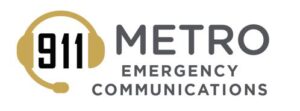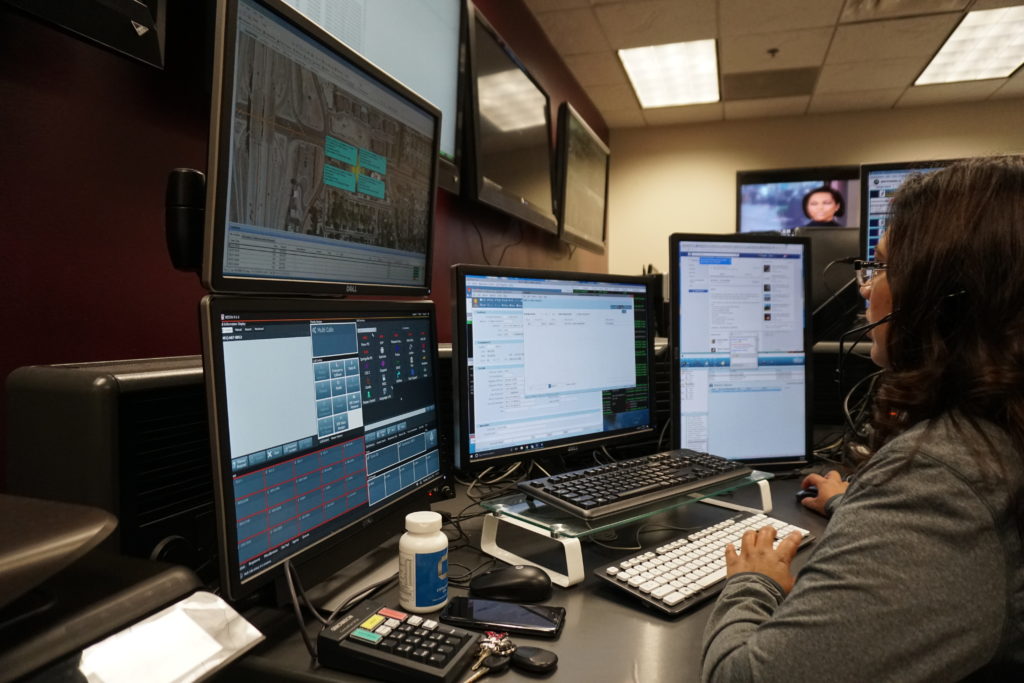 At Metro Emergency Communications, we stand as a beacon of hope and security for the cities of Orem, Provo, and Lindon. Providing vital police, fire, and medical assistance, our dedicated team is committed to answering the call for help with compassion and expertise.
At Metro Emergency Communications, we stand as a beacon of hope and security for the cities of Orem, Provo, and Lindon. Providing vital police, fire, and medical assistance, our dedicated team is committed to answering the call for help with compassion and expertise.
Our center is more than just a number to dial in an emergency; it’s a lifeline to all who are in need. Each month, our professionals handle over 20,000 calls, and we’re proud to say that 99.65% of those calls are answered within 15 seconds or less, far exceeding the statewide standard of 95%. Our commitment to swift response reflects our dedication to the safety and well-being of our community.
Our dispatchers are highly trained and certified through the Utah Police Officer Standards and Training (POST), CPR certified, and Emergency Medical Dispatch (EMD) certified through the International Academies of Emergency Dispatch (IAED) and the Utah Bureau of EMS. In addition, our team has received training on multiple FEMA National Incident Management (NIMS) courses, ensuring that we are fully prepared to handle any emergency situation with compassion, professionalism, and expertise.
Whether it’s a minor incident or a major crisis, you can trust Metro Emergency Communications to be there for you and your loved ones. Our dedication to exceeding standards, our investment in continuous training, and our unwavering commitment to our community make us a lifeline to all. When time is of the essence and every second counts, you can trust Metro Emergency Communications. Because to us, every call matters, every life matters, and we are here for you.
We are a lifeline to all.

Calling Dispatch
Once you reach a dispatcher, he/she will ask you some questions to determine who to send. Answering
these questions does not delay a response, as there is another dispatcher sending help as soon as they
know an address and what is going on. Some of the questions you can expect are below.
If you accidentally dial 9-1-1, please do not hang up. We follow- up on every hang up call, so please just
stay on the line and tell us it was an accidental dial.
When do I dial 9-1-1?
Anytime there is an immediate threat to life or property, a crime is in progress, or a fire or medical
emergency is occurring. Otherwise, call our non-emergency number at 801-229-7070. Additionally,
although 911 is a nationwide number, we do not have the ability to transfer you anywhere in the nation.
Calls can be transferred to neighboring centers, but not out of state. It is imperative that if you are
outside the jurisdictional boundaries of the city that your emergency is in, please attempt to contact the
appropriate dispatch center for that jurisdiction so that help can be provided as quickly as possible.
Where is your emergency?
We need to know the location where the emergency occurred. Often, someone may call for a person at
another location. Dispatchers would like to know an exact address, but sometimes you won’t know that
information. If you are able, please provide a business, cross street or a block where help is needed.
The dispatcher will ask if you are at a business, house, or apartment. If you are in an apartment, they will
ask you if there is a building number or letter and the name of the apartment complex. The more
information you can provide, the faster responders will be able to locate the request for assistance.
What is your callback number?
We will ask to verify the phone number you are calling from, including the area code. This is in case you
and the dispatcher are disconnected for any reason, we can call you back and continue getting the
information needed to send help. Dispatchers do not rely solely on the information generated on their
9-1-1 screens, as that information is not always completely accurate.
Tell me exactly what happened.
We need to know about the problem for which you are seeking assistance. If you are able to provide
information that helps responders determine what type and level of response is needed, this assists in
properly processing the call. The dispatcher may ask for a license plate number, vehicle description,
person description, whether weapons or alcohol/drugs are involved. These are questions that will assist
responders as they arrive in the area. The dispatcher will often keep you on the call to obtain as much
information as possible to relay to responders.